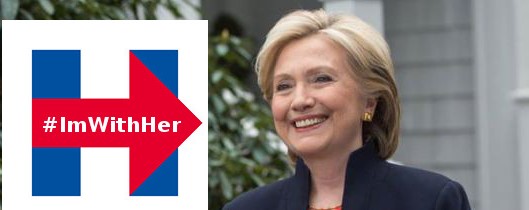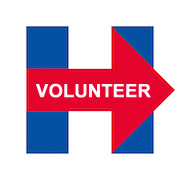Factsheets
Hillary
Clinton believes that raising incomes for hard-working Americans is the
defining economic challenge of our time. It requires not only strong
growth and fair growth, but also long-term growth—growth that isn’t as
vulnerable to crashes that hurt our families and set our country back.
Despite misleading attacks, Clinton
has a strong, comprehensive plan to
help ensure that middle class families never again have to bail
out Wall Streetand to hold the financial sector accountable for putting
our economy at risk. She would:
- Defend Dodd-Frank against Republican attacks.
- Impose a risk fee on the largest financial institutions and a tax on high-frequency trading.
- Require firms that are too risky to manage to reorganize or even break apart.
- Strengthen the Volcker Rule.
- Strengthen oversight of the “shadow banking” system to reduce risk.
- Hold individuals, not just corporations, accountable when they break the law, including through criminal prosecution.
- Ensure that the financial sector serves the interests of investors and consumers, not just itself.
- Slow the revolving doorbetween the financial industry and government financial regulators.
Tackling these issues isn’t new for Hillary Clinton. She has a long record of fighting for Main Street over Wall Street:
- In 2007, nearly a year before the crisis, shewent to Wall Street to
call directly for a moratorium of home foreclosures, to freeze
adjustable loan rates, and to require accountability on Wall Street.
- In March 2008, she called for new action tohelp millions of at-risk homeowners restructure their mortgages and a new housing stimulus package to fight concentrated foreclosures.
- In 2007, shecalled for ending
the carried interest loophole, which allows some wealthy investors to
pay lower tax rates on their income than average Americans.
- In 2008, sheintroduced legislation to
cap the amount top executives could earn tax-free through deferred
compensation, require top executives to return large performance-based
pay packages if financial irregularities were discovered, and give
shareholders a vote on executives’ pay packages.
- In 2008, before the crisis, shepledged to create a
CFPB-like “Financial Product Safety Commission to crack down on abusive
and predatory lenders and to protect consumers who use credit cards,
car loans, home mortgages, and other financial products.” According to
the Daily Beast, she put the idea for this kind of agency“at the heart” of
her “Fair Credit for Families Agenda” -- and the “idea eventually was
rebranded” as the Consumer Financial Protection Bureau.
Progressives, analysts and reformers have praised her broad approach to tackling risk in our financial system while protecting financial reforms from Republican attack:
- Paul Krugman:
“Hillary Clinton and Bernie Sanders had an argument about financial
regulation during Tuesday’s debate — but it wasn’t about whether to
crack down on banks. Instead, it was about whose plan was tougher. . . .
For what it’s worth, Mrs. Clinton had the better case.”
- New York City Mayor Bill de Blasio:
“Having studied all the Wall Street reform proposals, I firmly believe
Hillary Clinton has put forward the toughest, farthest-reaching plan of
anyone running for President. She would not only go beyond Dodd-Frank to
ensure the needed authority exists to break up or downsize banks that
are too large, but she also imposes new constraints on activities in the
shadow banking sector, which is too often overlooked. Hillary Clinton’s
plan confronts risk-taking wherever it occurs, from investment and
commercial banks to insurance firms to hedge funds. Her plan goes the
farthest to crack down on the true causes of the last financial crisis,
and to prevent the next one.”
- Former Congressman Barney Frank, author of the Dodd-Frank financial reform law, on Clinton’s high-frequency trading tax: “I think it’s a good idea.”
- Ohio Sen. Sherrod Brown,
ranking member of the Senate Banking Committee: “The things she does
will contribute to safety and soundness, will make Wall Street more
trustable by the public. All the things that we need out of Wall Street,
it does.”
- The New Yorker:
“If you agree with the Democrats thatWall Street should be reformed,
though, Clinton’s more comprehensive solution better grasps the world of
finance today.”
- Vox’s Matt Yglesias:
“Hillary Clinton has often stood accused of pandering or shaping policy
proposals for political purposes, but her proposals for improving
regulation of the financial system show her doing exactly the opposite —
tackling the issue of mega-bank risk in a thoughtful way that is likely
to prove politically thankless.”
- Ezra Klein: “This is a very good financial reform plan form [sic] Hillary Clinton”
- Politico’s Mike Grunwald: “Hillary’s ‘risk fee’ is so much smarter than an arbitrary cap on bigness. And this focuses on the right risks.”
- Roosevelt Institute CEO Felicia Wong:
“Secretary Clinton released a detailed and comprehensive agenda today
and her proposals to strengthen Dodd-Frank and the Volcker rule, step up
enforcement, and increase rules around shadow banking and
high-frequency trading demonstrate a thoughtful and serious approach to
these issues.”
- Roosevelt Institute’s Mike Konczal:
“Clinton’s agenda is a very detailed and comprehensive dive into
financial reform. It is broad, covering parts of the financial markets
that aren’t often discussed. If anything, it goes into such footnoted
specifics that it can be overly wonky.”
- MSNBC: Clinton unveils a plan that Wall Street won’t like.
- Brandon Garrett, University of Virginia law professor and authors of Too Big to Jail:
“Clinton has proposed for the first time a top-to-bottom plan for
policing and preventing corporate crime and financial misconduct. We
have not seen the likes of it in this campaign or elsewhere. . . . While
there have been critics of [the lack of corporate accountability] on
both sides of the aisle, some good proposals for legislation, concerns
raised by judges, and saber-rattling statements from the Department of
Justice, what we have not seen is a plan for action that fundamentally
rethinks how financial offenses are handled.
Read more >>>>


